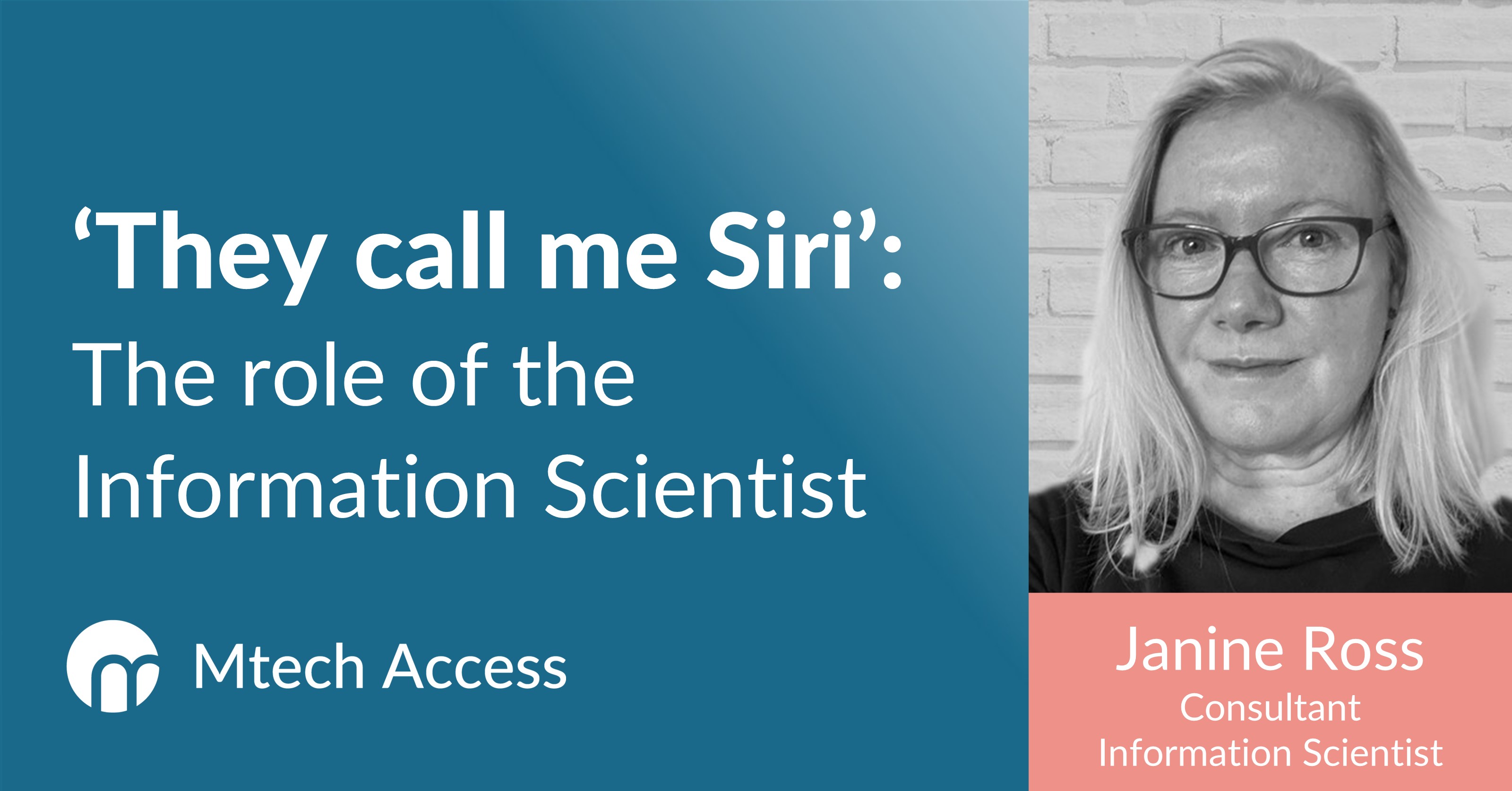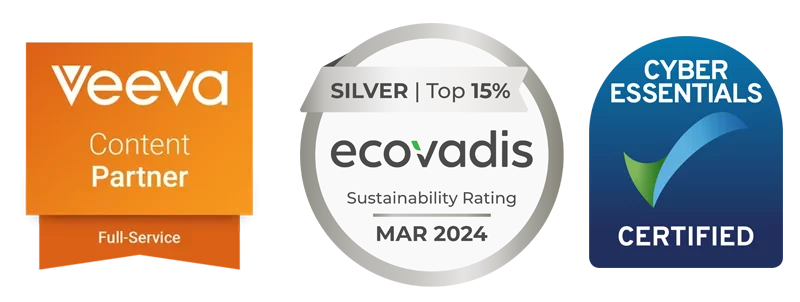
Janine Ross, who recently joined the Mtech Access evidence team as a Consultant Information Scientist, explains how her aptitude for searching and identifying evidence data has earned her the nickname “Siri” in previous roles. In this interview, we discuss how Janine has begun utilising this expertise to support our clients’ reimbursement and market access requirements.
What does your role as an Information Scientist involve?
I work within the evidence team at Mtech Access and my role includes supporting the team to identify the evidence for systematic reviews, HTA submissions, rapid reviews, and ad hoc requests where literature searching or evidence identification is required. I scope searches in bibliographic databases and develop search strategies that can be comprehensive or, in some cases, more iterative.
I am really interested in the methodological and reporting aspects of the searching process for systematic reviews. This is often neglected but it is such an important part of the process! If you don’t report how you found the evidence clearly, it impacts on the validity of your review!
I particularly enjoy developing strategies for complex disease and intervention combinations, as well as delving into topics where information is scarce, like with orphan diseases. I relish the challenge of searching for elusive information and being able to locate it both efficiently and quickly to support colleagues and clients; that’s why colleagues in my previous company called me ‘Siri’.
What led you to a career as an Information Scientist?
I have a background in Biology but soon after leaving university I started a role in the Information Centre at the Medicines and Healthcare products Regulatory Agency (MHRA). My role involved answering queries regarding pharmaceuticals and medical devices from a wide variety of clients, including healthcare professionals, patients, professional bodies and even MPs. This is where my affinity for searching, handling, and communicating diverse types of pharmaceutical, medical device and healthcare information began. The MHRA supported me to complete an MSc in Information Science, which was really varied and allowed me to learn about legal and financial information and also the Dewey Decimal System (which I have never had a chance to utilise!).
I then moved to work for a global Medical Device company and my role included searching patent databases, which really developed my searching skills; you certainly need to think outside the box to identify competitor patents to ensure freedom to operate in your product area! I didn’t realise there were so many ways to describe a hip replacement prosthesis.
My most recent role was at a systematic review consultancy as part of a team of information specialists. As well as providing systematic reviews, literature reviews and economic evaluations, the consultancy was also an Evidence Review Group (ERG), assessing company HTA submissions to NICE. My role on the ERG team was to critique the methods of evidence identification and reporting in submissions.
What advice can you share from your experiences reviewing evidence submissions?
From my experience as part of an ERG, there is a wide variety in submission quality, and interpretation of the evidence search requirements as detailed in the NICE methods and submission templates. I have seen a company spell their own drug incorrectly in search strategies, entire search strategies omitted from submissions, and searches that do not match the final HTA scope.
My top tip to companies and third parties conducting reviews for NICE submissions would be to ensure your systematic review methods are as clear, transparent and reproducible as possible, so that another person could replicate the search in its entirety. Ensure that you report your sources; there is often much confusion between bibliographic databases and database hosts… OVID is a host not a database and Google Scholar is not a database!
What have you been doing in your first few weeks with Mtech Access?
My first few weeks at Mtech Access have been busy and have already seen me involved on several different projects in a wide range of therapeutic areas. I have developed and run searches for a number of projects, including prostate cancer, lymphoma and atrial fibrillation. I have also worked with colleagues across the business to assist them in finding information and data to support projects in our Heath Economics team, and searched for hospital data from countries outside the UK for colleagues in the Global Value Communications team.
I’ve also been busy meeting people from all the different teams at Mtech Access in induction meetings and learning about what they do and how they contribute to the different areas of market access.
What have you learnt from your first interactions with the team?
I’ve been blown away by how friendly and approachable the whole Mtech Access team is. I’ve never had such a comprehensive yet relaxed induction process in a new role before. I’ve felt so informed and supported in my first few weeks here.
Through my induction meetings I quickly learnt that Mtech Access has some pretty unique qualities that make them stand out in their field; fundamentally, highly knowledgeable and experienced staff that put the needs of clients at the forefront of everything they do. I was particularly impressed with some of the digital value communications tools developed for clients that allow complex information to be readily available at their fingertips in an easy-to-use, dynamic format, which was pretty exciting to see (especially as an information scientist!).
When you are not at work, what do you like to do?
I have a very inquisitive and active 5-year-old daughter so much of my time away from work is having fun as a mummy and spending time outside with her and my husband. I like to bake, cupcakes are my speciality, and before Covid restrictions I had started a printmaking course at college, learning various printmaking techniques, ranging from printing with paint and bubble wrap, to linocut and collagraph printmaking.
If you’d like to know more about our approach to evidence generation, please email info@mtechaccess.co.uk.
If you are interested in joining our team at Mtech Access, please visit our careers page for details of our current vacancies.

